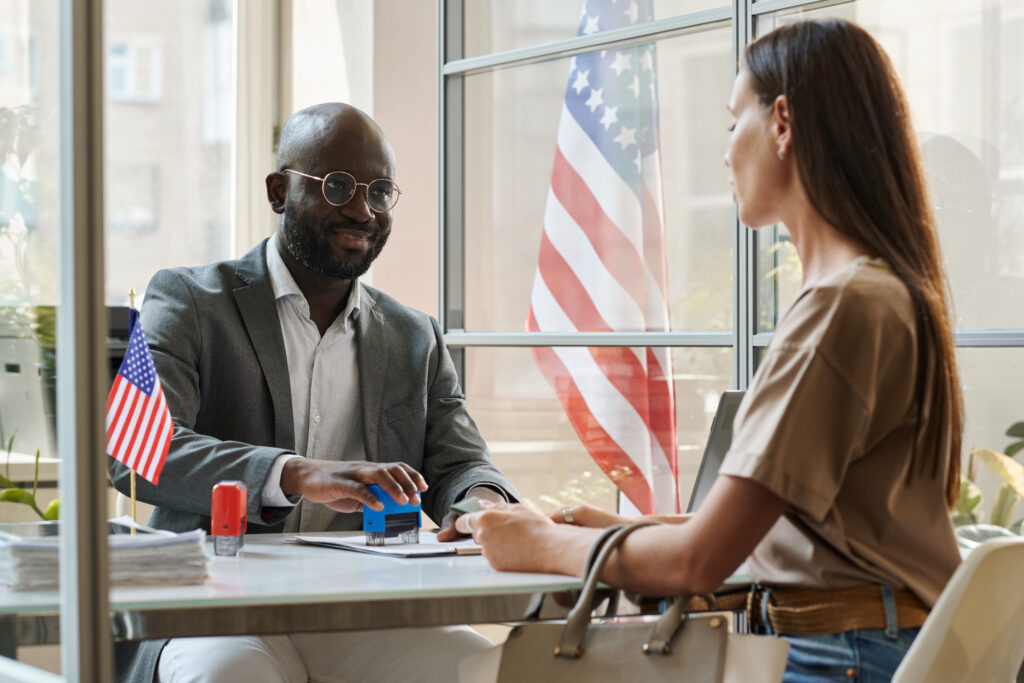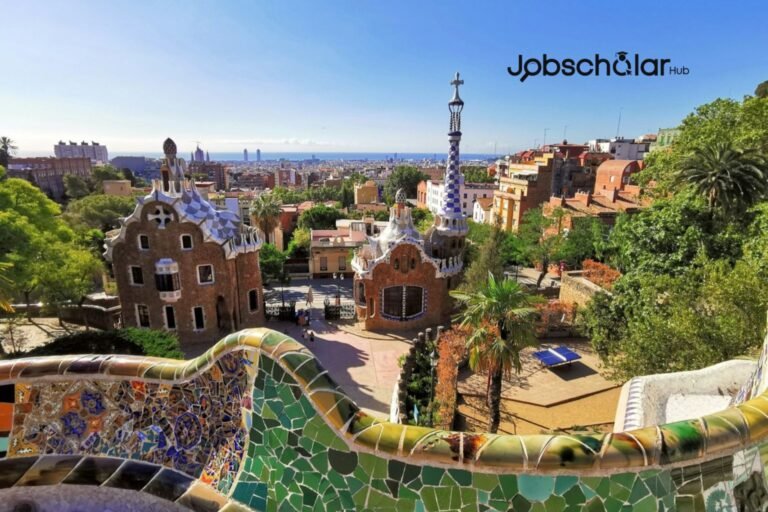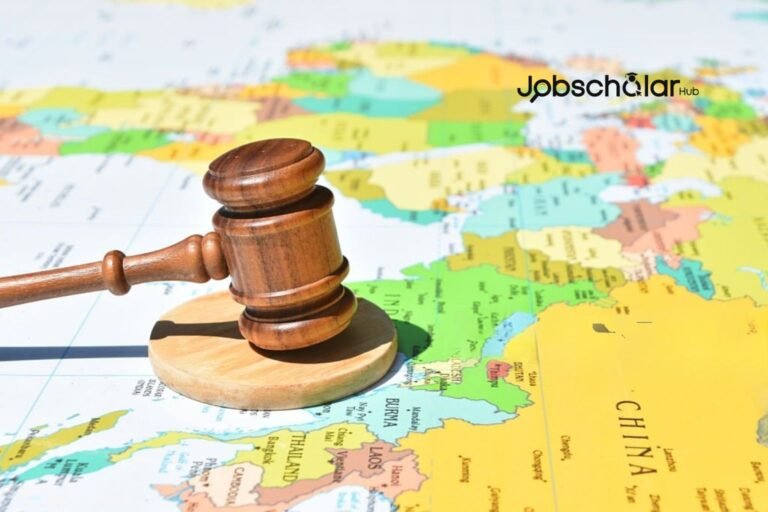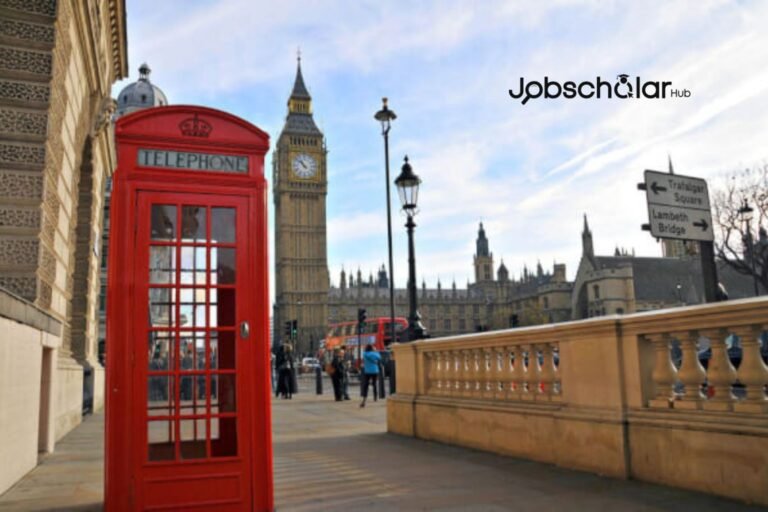The B2 Visa Is a non-immigrant visa that allows foreigners to enter the USA for tourism, medical treatment, and short-term visit. In fact, more than 5 million B2 visas are granted each year, according to U.S. State Department. However, getting approved isn’t as simple as filling out forms. The key is all about acing the B2 visa interview questions.
From proving your intent to go back home to explaining your travel plans, consular officers don’t leave any stone unturned. Being aware of the frequently asked B2 interview questions and answering them confidently is the turning point of getting the approval of the visa.
Table of contents
- What is the B2 Visa For?
- Who is Eligible for the B2 Visa?
- What You Can Expect at the B2 Travel Visa Interview?
- Must-Know B2 Visa Interview Questions for First-Time Applicants
- Personal Information and Background B2 Visa Interview Questions
- Purpose of Visit B2 Visa Interview Questions
- Financial Stability B2 Visa Interview Questions
- Travel History and Previous Visas B2 Visa Interview Questions
- Documentation B2 Visa Interview Questions
- Red Flag Questions on B2 Visa Interview Questions
- B2 Visa Interview Tips
- FAQs
- Conclusion
- References
- Recommendations
What is the B2 Visa For?

The B2 visa is designed for non-immigrant U.S. visitors wishing to stay in the United States temporarily for leisure, tourism, or medical treatment. Whether you plan to visit the stunning Grand Canyon, go to a family wedding, or access specialized healthcare, the B2 visa is your official authorization to visit the U.S. temporarily for non-work reasons. It enables visitors to remain in the U.S. for as long as six months — and in some instances, to request a six-month extension.
Most consider it a golden ticket to live the American dream —but just for a little while. With this visa, you can travel to see iconic attractions, visit friends and family members, enjoy recreational activities, and participate in short courses that do not grant university credit. But the B2 visa does not allow the person to work or study long term.
The U.S. Department of State records indicate that millions of B2 visas are issued every year but many applicants are turned down because of lack of documentation and fear of overstaying. This is why it is important to understand the eligibility requirements and be well prepared.
You should read- Visa Interview Questions You MUST Prepare For — And How to Nail Every Answer!
Who is Eligible for the B2 Visa?
The B2 visa is open to anyone who wants to enter the United States temporarily for leisure, tourism, family visits, or medical treatment. However, those eligibility requirements must be met first. The U.S. government needs assurance that visitors won’t stay past their assigned time or take jobs illegally. The primary requirements to qualify for a B2 visa are:
Legitimate Purpose of Visit:
You need to specify the reason for going to the U.S. — tourism, visiting family or attending to medical needs. Ambiguity can lead to denial.
Proof of Financial Means:
You need to show that you have enough funds to support your trip, which can include travel, accommodation, and other costs. Proof is often in the form of bank statements and pay slips.
Ties to Your Home Country
This is one of the most crucial aspects. You must show that you have strong reasons to return home following your visit. Strong ties are things like a steady job, family, home or house, or continuing education.
Clean Record & No History of Visa Violations:
Previous overstays, abuse of visas or criminal records can seriously damage your chances. Consular officers scrutinize travel history and conduct background checks.
Clear Travel Itinerary:
– A specific itinerary that details where you will go, where you will stay and how long you will be there indicates you have planned a brief visit, not permanent settlement.
Medical Requirements (For Health-Related Visits):
If coming for medical treatment, you must provide medical diagnoses, treatment plans and proof that you can pay your way.
There are no age limits or nationality restrictions on the B2 visa, but applicants from countries with high rates of visa overstay are likely to be subject to greater scrutiny. Good preparation of documented evidence and confident answers to interview questions greatly increase the chance that the visa will be approved.
Check out: Family-Based Immigration in the U.S- Sponsorship & Visa
What You Can Expect at the B2 Travel Visa Interview?

Once, you have submitted your tourist visa application (Form DS-160), the next step in the process, is to schedule your visa interview. Waiting for a visa appointment is country-specific, but generally, you should have roughly two to three weeks to get ready for the interview once it’s on your calendar.
Your visa interview will be held at the U.S. Embassy or consulate where you filed your application. A consular officer will interview you, asking about your proposed travels to the U.S., your home country life and your immigration history. The consular officer can also verify information you’ve provided in your application and review any supporting documents you’ve brought along.
For most applicants, the average travel visa interview lasts for a matter of minutes — anywhere from 90 seconds to three minutes. In that brief period, you will need to answer all of the interviewing officer’s questions about your application, as well as pose any questions you have about the process, and get directions for what to do next.
In the majority of situations, the consular officer will make a decision right after the interview is over, and you’ll find out shortly after if your B2 visa has been approved or denied.
Read this related content: Netherlands Work Visa Requirements 2025
Must-Know B2 Visa Interview Questions for First-Time Applicants

Below are 50+ Must-Know B2 Visa Interview Questions for First-Time Applicants divided into 6 key categories and tips on what the consular officer is expecting from you.
Personal Information and Background B2 Visa Interview Questions
These questions assist officers in validating your identity and history. When answering, be honest and consistent.
What is your name in full, and when were you born?
Try to respond with confidence and make sure your answers align with your documents.
What is your current place of residence?
Answer factually — they could cross-check based on your visa form.
What do you do for work?
Provide the name of your job title and employer, as well as years of experience.
Are you married? If so, what does your spouse do?
Give as much information as you can. This question is a way to determine whether or not you have ties in your home country to persuade you to return home.
Do you have children?
If you do, tell them something about your children — and that your children depend on you.
Have you ever traveled out of your country?
Make sure you answer truthfully. You may also provide your travel history to prove you respect visa laws.
Do you own property or other assets?
Make sure to outline any land, houses, or financial assets as ties to home.
Who is going to manage your work when you are not there?
In answering thus, make sure you show you have reasons to return to your country.
Have you ever applied for a U.S. visa before?
Be truthful. They have records.
Have you ever been denied a visa in any country?
Answer honestly. Lying is a red flag.
Read also: Best UK Jobs With Visa Sponsorship
Purpose of Visit B2 Visa Interview Questions
Why do you want to travel to the United States.
Specify the purpose — tourism, family visits, medical. Don’t leave out the details. Try to sound very excited about the reason you’re travelling.
What areas will you visit in the U.S.?
Talk about major cities or attractions. Show you’ve planned. Make sure you also bring up when you’re coming back.
How long do you expect to stay?
Set a realistic deadline — 2-4 weeks is a great range.
Are you traveling solo or with someone else?
If you are traveling with family or friends, mention their names.
Who is funding your trip?
Indicate if it is self-funded or sponsored.
Do you have family or friends here in the U.S.?
If they are relevant, mention them, but don’t imply you’re going to overstay.
Are you doing any functions or events?
Refer to weddings, graduations or tourism activities.
Are you going to work during your time in the U.S.?
Strongly say no — the B2 visa prohibits employment.
What will you do once you return home?
Present a job, family, or studies as reasons to go back.
You should read: How to Work Less and Earn More in 2025: A Guide to Achieving Work Balance and Financial Freedom
Financial Stability B2 Visa Interview Questions
They want to make sure you can afford your trip and that you won’t become a burden.
How much do you pay to cover your food each month?
Approach with an accurate number and documents if required.
Do you have bank statements to support your finances?
Provide 3–6 months of bank statement.
Who is funding your travels (if any)?
State the sponsor and the nature of the relationship.
What is your budget for the trip?
Be realistic about costs of flights, lodging, and other expenses.
Do you own property or have bank savings?
Draw attention to real estate connections back home.
What is your sponsor’s occupation?
Talk about their occupation and earnings.
Why can’t you finance this trip yourself? (If sponsored)
Be respectful in explaining your situation.
Do you already have travel insurance?
If yes, say so; if no, that’s okay. It’s a favourite but not required.
Do you have any outstanding loan or debt?
Be honest. Big debts are a sign of financial distress.
Have you ever struggled with money?
Be honest but steer towards your present financial health.
You should read: How To Get Best USA Jobs With Visa Sponsorship
Travel History and Previous Visas B2 Visa Interview Questions
A good travel history helps in building trust.
Have you ever traveled internationally?
Mention past travels to prove your respect for visa regulations.
Have you been to the U.S. in the past?
If applicable, mention when and why.
Have you overstayed a visa in any country?
Tell the truth — they can check this.
Do you hold valid visas for other countries?
Tell them if you possess visas for the UK, Canada, or Schengen nations.
How long did you stay on your most recent international trip.
Emphasize your return was timely.
Have you had any problems at immigration before?
Disclose and justify if relevant.
Would you travel to different countries in the future after this trip?
Yes — demonstrates you don’t plan to outstay your welcome.
You should read: Australian Visas: Choose the Perfect Path for Your Migration
Documentation B2 Visa Interview Questions
They want evidence to support your assertions.
Can I see your passport?
Hand it over calmly. Make sure it is valid for 6+ months.
Do you have your DS-160 confirmation?
Show the form — this is a must.
Where Is The Confirmation For Your Interview Appointment?
Print it out or show on your phone.
Do you have your bank statements?
Make sure you have this available. Your finances are very important to the embassy.
Would you mind showing your travel itinerary?
Show your flight reservations or planned itineraries.
Do you have proof of ownership of any property?
If deeds are available, present them
Can you provide your hotel reservation or proof of accommodation
Feel free to show them these documentations
You should read: How To Get Best USA Jobs With Visa Sponsorship
Red Flag Questions on B2 Visa Interview Questions
They use these to identify overstayers or ulterior motives.
What will you do when your visa is rejected?
Say that you will reapply or try again in the future.
Are you considering extending your stay in the U.S.?
Make sure you emphasize that it’s a solid no. You can even bring up plans that you have when you’re back to your country.
What do you do if someone offers you a job in the U.S.?
Say you will decline — it is unlawful to work while on a B2 visa.
What makes you so sure you are going to return to your country?
Quell their fears by highlighting family/job attachments.
Do you know someone who overstayed their U.S. visa?
Be careful, say no if you can.
Are you booked on a one-way ticket?
Avoid one-way tickets. Round-trip is ideal.
Are you traveling with any dependents?
Don’t lie and submit their documents.
Are you planning to study in the U.S.?
In response, remember to firmly just say B2 is for tourism/medical.
Would you work if you had the option?
Never say yes. It is a trick question. The right answer is always no.
You should read: Family-Based Immigration in the U.S- Sponsorship & Visa
B2 Visa Interview Tips
Make sure to emphasize on the “Nonimmigrant Intent”
Proving that you plan to return home after a temporary stay in the U.S. is one of the most significant aspects of applying for a travel visa.
Given that the B2 visa is a “nonimmigrant visa,” you’ll need to demonstrate nonimmigrant intent to the U.S. government — meaning that you will depart the country upon the expiration of your visa and will not migrate permanently to the United States. It is your responsibility as the visa applicant to prove to the authorities that you will use your travel visa correctly.
If you cannot establish that you will use the travel visa for its intended purpose, you may be denied by the consular officer with no right to appeal or review. And that’s why the visa interview stage of the travel visa process is a critical one, because what the consular officer sees of the applicant during this interview will highly influence their decision to approve or deny the visa.
The simplest solution in demonstrating “nonimmigrant intent” during a visa interview is to showcase strong ties to your home country. When it comes to talking about your life, also include details about any jobs, schooling or family responsibilities you’ll have to go back to at home.
Check out: Visa Interview Questions You MUST Prepare For — And How to Nail Every Answer!
The More Detail, the Better!
When it’s time for your interview, be prepared to answer the questions posed by the consular officer in as full detail as you can. What matters most in the interview is answering each question honestly and thoroughly, so the interviewing officer has a clear and complete picture of your application.
If, for instance, you may be asked where you plan to travel in the U.S., that is, city names, not just states. If you are asked about your work history in your home country, just explain your current position/tasks in details instead of just answering “yes” or “no”.
Providing particulars will provide the consular officer with a clearer understanding of your background and visa goals. If the interviewing officer is left with vague answers by the applicant, this will lead to more in-depth follow-up questions and a chance for answers to be misinterpreted. When you see that the officer seems unsatisfied with one of your answers or does not understand it, try to quickly formulate the same answer in different words or add an explanation. If you’re confused by a question that’s been asked, don’t hesitate to ask the consular officer to clarify the question or provide you with more information on what is being asked.
You should read: 10 Easiest Countries to Get a Work Visa in 2025
Keep the Logistics in Mind
You need to prepare first logistically for interview day before you can nail your interview questions. As always, make sure to get to your visa appointment on-time so that you can check in for your appointment at the right location and plenty of time beforehand. You might want to consult your U.S. Embassy or consulate’s website in advance for details on parking, waiting areas and more.
It’s also a good idea to dress professionally when visiting a U.S. Embassy or consulate, just as you would for a formal job interview (business attire is best). When you arrive, be sure that you’ve assembled all additional supporting documents you might need to show to the consular officer during the interview. In general, professionalism and organization will help you increase the chances of the interview running smoothly.
Before you go, you should read: Working in Australia: Complete Guide
FAQs
The B2 Visa is a non-immigrant visa meant for tourism, receiving medical treatment, or visiting family/friends in the United States.
Bring your passport, DS-160 confirmation page, visa appointment confirmation, financial documents, and evidence of ties to your home country.
Demonstrate compelling ties, like a job, property ownership, family members or ongoing education, to intiate that you’ll come back.
Conclusion
A successful B2 visa interview isn’t about memorizing the correct answers — it’s about being honest and prepared. Knowing what questions are the most common and how to answer them clearly and honestly can dramatically improve your odds of success.
Whether you need to prove that you aren’t a financial burden or explain the reason for your visit, confidence and preparation can make all the difference. If you approach things correctly, not only will you pass the interview, but you’ll soon be getting onboard a flight to the U.S.
Do you want to check out Finland? Read: 9 Steps To Relocate To Finland: Ultimate Guide For Your Relocating Journey.
References
- Boundless Immigration- B2 Visa Interview Questions
- Atlys- B2 Visa Interview Questions and tips
- VisaHQ– B2 Visa Interview Questions you need to know






